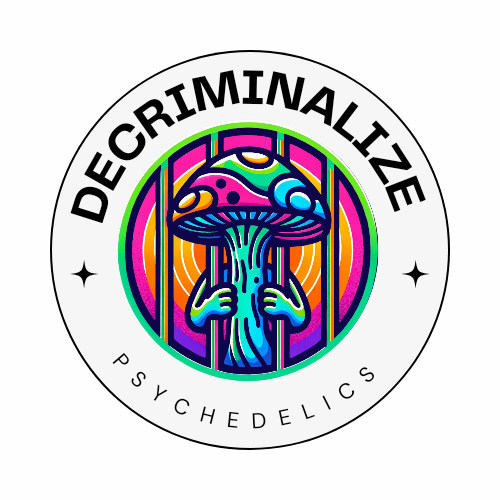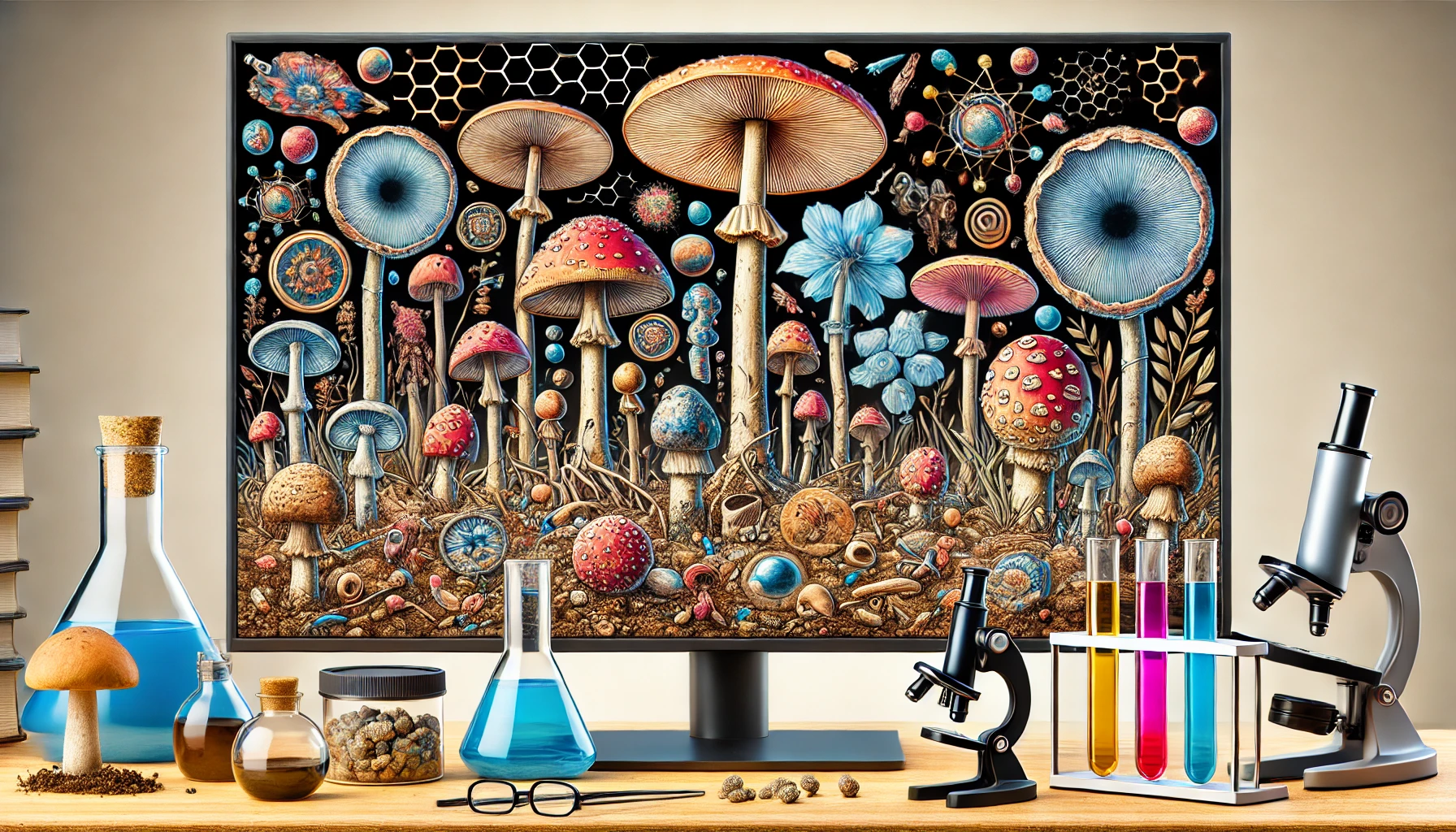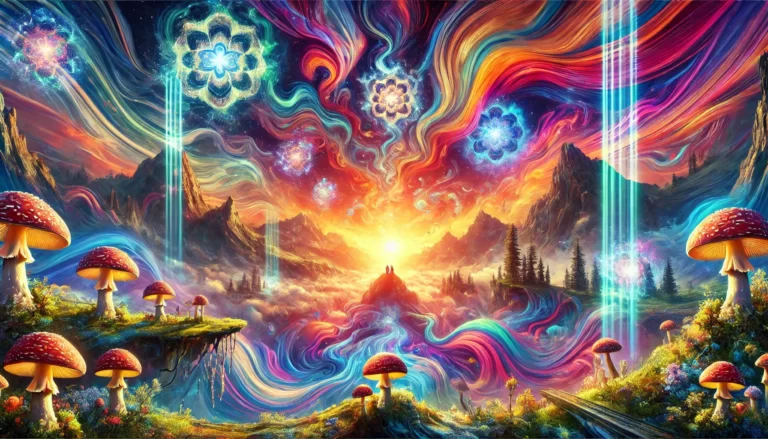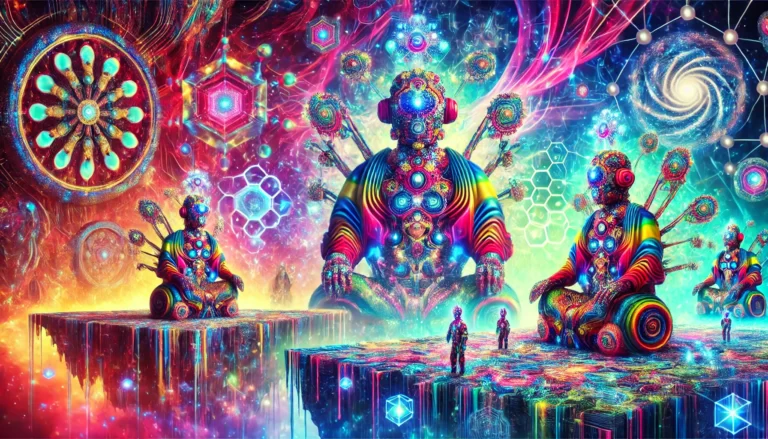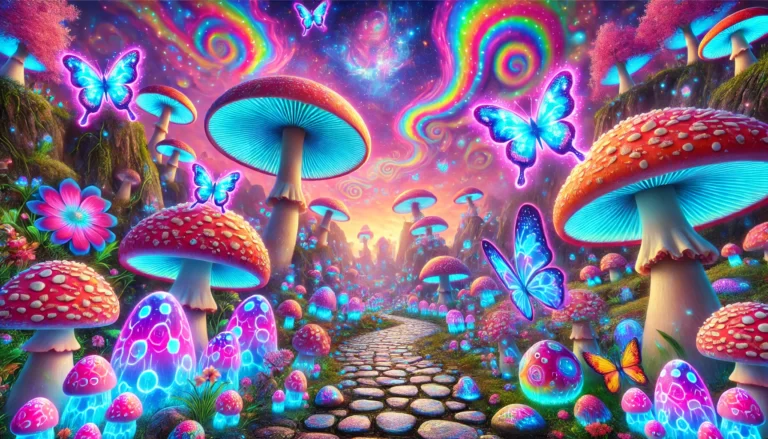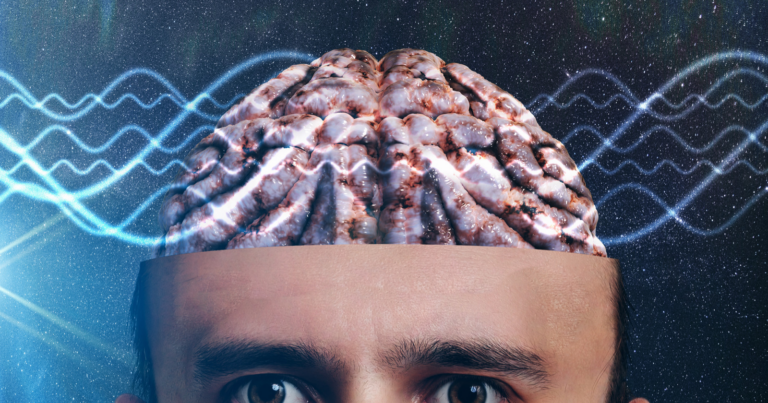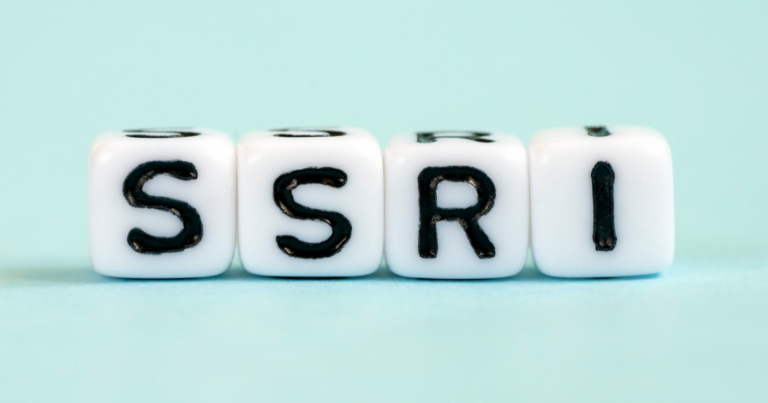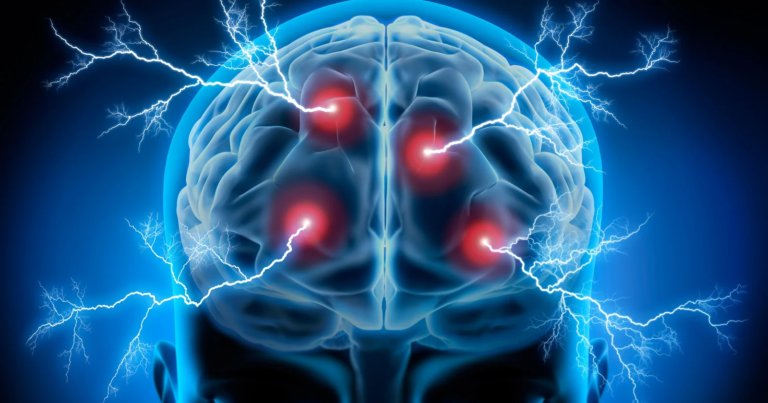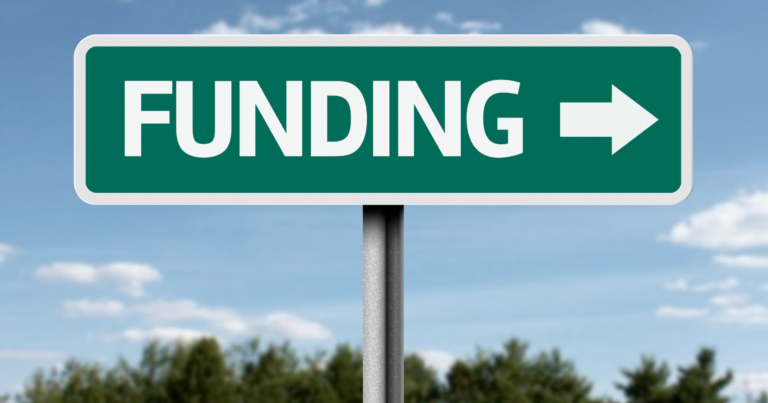Psilocybin mushrooms are surrounded by myths and misconceptions.
They hold a fascinating complexity that’s often misunderstood.
Whether you’re a skeptic or a believer, it’s vital to separate fact from fiction when it comes to these intriguing organisms.
As a seasoned researcher, I’ve come across numerous beliefs surrounding magic mushrooms.
Here, I’ll debunk 7 commonly held myths about psilocybin mushrooms that you maybe believed were true.
1) All Psilocybin Mushrooms are the Same
One of the most prevalent myths I’ve encountered is the belief that all psilocybin mushrooms are the same.
Contrary to this common misconception, not all ‘magic’ mushrooms are created equal.
There are over 200 known species of psilocybin mushrooms, each with varying levels of psychoactive compounds, physical characteristics, and habitats.
Take for instance, Psilocybe cubensis and Psilocybe semilanceata – two popular species in the psilocybin family.
While both contain the psychoactive compound psilocybin, their potency levels differ significantly.
Psilocybe semilanceata, commonly known as the liberty cap, is generally more potent than the widely cultivated Psilocybe cubensis.
But, these species have distinct appearances and grow in different environmental conditions.
The former is recognized by its conical or bell-shaped cap and thrives in grasslands, whereas the latter has a more convex cap and prefers subtropical humid climates.
As for me, understanding this diversity is key to appreciating the complexity of psilocybin mushrooms and debunking the myth that they’re all the same.
In truth, each species offers a unique blend of properties that contribute to their effects and potential benefits.
2) Psilocybin Mushrooms are Highly Addictive
Another widely held myth I’ve come across is the notion that mushrooms are highly addictive.
In reality, the scientific consensus suggests otherwise.
Unlike substances such as nicotine or opioids, psilocybin mushrooms do not lead to physical addiction.
Studies show that these mushrooms do not trigger compulsive drug-seeking behavior, a characteristic trait of addiction.
Why is this so?
The answer lies in the unique way psilocybin interacts with our brain.
When consumed, psilocybin gets converted into psilocin, which binds to serotonin receptors in the brain.
This interaction produces the well-known psychedelic effects. But, unlike addictive substances, psilocybin doesn’t stimulate dopamine release – a neurotransmitter associated with reward and addiction.
But, tolerance to psilocybin builds up quickly with repeated use.
This means that you would need to consume increasingly larger doses to achieve the same effects, which acts as a natural deterrent against frequent use.
While psychological dependence or misuse can occur with any substance, it’s crucial to differentiate this from physical addiction.
The myth of magic mushrooms being highly addictive is far from the truth but it’s always important to approach their use responsibly and with awareness.
3) Psilocybin Mushrooms Cause Brain Damage
Despite the previous point, you might still worry about potential harm to your brain.
After all, it’s not uncommon to hear claims that psilocybin mushrooms cause brain damage.
But, contrary to this fear, current scientific understanding suggests that mushrooms do not cause structural damage to your brain.
In fact, some research indicates that psilocybin may promote neurogenesis – the growth of new neurons.
How can this be?
The answer lies in the nature of psychedelic substances.
Unlike certain drugs that can cause neurotoxicity, psilocybin has a unique mechanism of action.
It primarily binds to serotonin receptors in the brain, which doesn’t lead to cell death or structural damage.
Studies have also suggested that psilocybin may have potential therapeutic benefits for certain mental health conditions, including depression and anxiety.
This is an active area of research and offers promising insights into the potential benefits of psilocybin mushrooms.
So while it’s natural to worry about potential harm, it’s important to know that the myth of psilocybin mushrooms causing brain damage isn’t supported by current scientific evidence.
As always, responsible and informed use is key.
4) Magic Mushrooms Lead to Psychotic Disorders
Have you ever worried that consuming psilocybin mushrooms could lead to long-term psychotic disorders?
This fear is another common myth surrounding magic mushrooms.
The reality, however, is quite different.
While it’s true that psilocybin can induce short-term changes in perception, mood, and thought – commonly known as a ‘trip’ – these effects are typically transient and do not persist once the drug wears off.
Existing research does not support a direct link between responsible psilocybin use and the onset of long-term psychotic disorders.
In fact, studies suggest that psilocybin can potentially help alleviate symptoms of certain mental health conditions when used under appropriate therapeutic settings.
That said, it’s crucial to note that individuals with a personal or family history of psychosis or other severe psychiatric disorders should avoid psilocybin due to the potential risk of exacerbating these conditions.
While the experience of consuming psilocybin mushrooms can be intense and deeply introspective, the myth that they inherently lead to long-term psychotic disorders isn’t consistent with current scientific understanding.
As always, individual circumstances and responsible use are of paramount importance.
5) Psilocybin Mushrooms are Always Dangerous
A primary myth that persists is the blanket statement that psilocybin mushrooms are always dangerous. This broad generalization fails to consider several factors:
- Set and setting: The mindset of the user and the environment in which the mushrooms are consumed greatly influence the overall experience.
- Dosage: The amount consumed can drastically alter the effects and potential risks.
- Individual characteristics: Personal health, mental state, and genetic predispositions can all play a role in how one reacts to psilocybin mushrooms.
Simply put, danger is not an inherent property of the mushrooms themselves but rather a result of misuse or inappropriate circumstances.
Responsible use, including dosing appropriately, considering one’s mental health status, and creating a safe environment, can mitigate many potential risks.
This is not to downplay the potential hazards associated with psilocybin mushrooms.
They are powerful substances that should be treated with respect.
But painting them as universally dangerous does a disservice to the nuanced reality of their effects and potential benefits.
6) Mushrooms are a Gateway Drug
Another myth that we often encounter is the idea that psilocybin mushrooms act as a ‘gateway drug’, leading users to try more harmful substances.
The notion of a ‘gateway drug’ is controversial in itself, and when it comes to psilocybin mushrooms, research does not support this claim.
In fact, studies suggest that the use of psychedelics is generally not associated with increased consumption of other illicit substances.
Let’s be clear: using psilocybin mushrooms does not automatically predispose one to use or become dependent on other drugs.
Substance misuse is complex and often tied to a host of other social, psychological, and genetic factors.
While it’s crucial to approach any substance use with awareness and caution, perpetuating the myth of psilocybin mushrooms as a gateway drug oversimplifies the reality and ignores the potential therapeutic benefits that these substances may offer when used responsibly.
7) Magic Mushrooms Have No Therapeutic Value
Imagine being told that something you believed could potentially aid in your healing process was utterly without value.
This is a scenario that many advocates of psilocybin mushrooms have faced, due to the pervasive myth that these fungi have no therapeutic value.
Contrary to this misconception, a growing body of research indicates potential therapeutic uses for psilocybin mushrooms, specifically in the field of mental health.
Studies suggest that psilocybin, under guided and controlled conditions, can help alleviate symptoms of conditions such as depression and post-traumatic stress disorder (PTSD).
From my own exploration into this topic, I’ve found countless anecdotal accounts of individuals who have experienced profound therapeutic benefits from using psilocybin mushrooms.
While these stories alone do not constitute scientific evidence, they highlight the need for further research into the potential healing properties of these remarkable organisms.
So, while it’s critical to approach such claims with scientific rigor and skepticism, dismissing the therapeutic potential of psilocybin mushrooms outright is not only misguided but goes against emerging scientific evidence.
Bonus Myth
The final myth that needs to be addressed is the notion that psilocybin mushrooms are legal everywhere. This is far from the truth.
In reality, the legality of psilocybin mushrooms varies widely around the world, and often within countries themselves.
In some places, they are outright illegal, while in others, they exist in a legal gray area or are fully decriminalized.
For instance, in the United States, psilocybin is classified as a Schedule I substance under the Controlled Substances Act, making its possession, sale, or manufacture illegal.
But, several cities and states have enacted legislation to decriminalize psilocybin to varying degrees.
The complexity of these laws and their rapid evolution makes it essential for anyone interested in psilocybin mushrooms to stay informed about the legal status in their specific location.
Ignorance of these laws can lead to serious consequences, making this an important facet of responsible use.
A New Understanding of Psilocybin Mushrooms
In this exploration of psilocybin mushroom myths, we’ve challenged some common misconceptions and shed light on the complex reality of these fascinating organisms.
We’ve debunked myths and highlighted the importance of informed and responsible use, aligning with our commitment to holistic awareness and personal growth.
- Recognize the diversity among magic mushrooms.
- Understand they’re not addictive or inherently dangerous.
- Appreciate their potential therapeutic benefits.
- Stay informed about their varying legal status.
This newfound understanding invites us to approach psilocybin mushrooms with a balanced perspective, acknowledging both their potential benefits and risks.
It’s an open invitation for a deeper exploration into the world of psilocybin mushrooms, fostering curiosity, and promoting personal growth.
With this knowledge, we can continue our pursuit of holistic well-being, transcending common myths and misconceptions.
